
M Craft: “It was noodling with intent” Pic: Kristy Campbell
We speak to the artist known as M. Craft about how life in the Mojave Desert inspired his latest record
Having rejected Los Angeles for life in a cabin on the edge of the Mojave Desert, Canberra-born songwriter Martin Craft immersed himself in his new environment and gave birth to the majestic Blood Moon. His third album as M. Craft, it is both stark and cinematic and the result of a painstaking process which began with hours spent on his Mason and Hamlin concert piano back in the city. As well as his own projects, Craft has co-written with artists such as Empire Of The Sun, Rumer and Jarvis Cocker and he has also worked as a producer.
With such an interesting backstory behind his new record we were delighted to be able to track Martin down, in Berlin, to chat about Blood Moon and why we should all embrace the wiggly side of life…
Can you start by telling us how you ended up making music in the Mojave Desert?
“Like a lot of London types I’d dreamt of moving to L.A. for several years, to get a bit of sunshine and have a new phase of life. Once I’d been there for about a year things became a little bit difficult, it’s a harder town to crack than you realise from the outside. I’d been taking trips out to the desert just to check it out and it was amazing. At some point I started looking online, found a place to rent and moved there.
“In that interim period I’d been doing these piano recordings in L.A, improvisations which were really freeform and not for any particular purpose. I ended up with about six or seven hours of me improvising at the piano, some of which I loved. I could hear that there was something in it but I wasn’t sure what it was. During that first period out in the desert I was really in the middle of nowhere and I found myself getting into those piano recordings and I started cutting them all up and turning them into songs.”
So it just started with you noodling on the piano without knowing what you were going to do with the pieces?
“It was noodling with intent. I’d been thinking of doing a piano record for about ten years. I knew there was something in it which was why I did the noodling in a studio on a beautiful piano with great mics all over it because I knew that something could come of it, but at that stage I had no idea what. Actually nothing could have come of it, I find that part of my practice is to go into a studio and create stuff just to see if it leads anywhere and get ideas.”

Martin Craft: “I use MIDI all the time but I enjoyed escaping that kind of grid structure”
How did you then begin that process of cutting them into songs?
“At the risk of sounding pretentious I started thinking of the recordings like a sculpture. You read interviews with sculptors and they often say that they look at a block of wood or lump of stone and can see a shape emerging out of it. In a way I felt like that about these piano pieces, they had lots of different forms but I could see a little bit here and a couple of minutes there and I’d think about how I could put them together. It was just an interesting process, starting with the raw material and letting the songs come from that. I’ve done a load of writing in a lot of different formats but this one was a liberating process for me.”
Was it then difficult to fit the lyrics over the music?
“I’ve written songs in the past where the lyrics are quite refined and I’ve spent years hacking away at them trying to make them absolutely perfect. On this particular record I really wanted them to sound primal and raw and impressionistic. They aren’t meant to drive the listener, it’s more about the overall feeling. The lyrics are almost intentionally abstract and they’re quite minimal.”
Do you often find that location and geography is a driving force for your music?
“I don’t know if it is, but I do travel quite a lot. I often have sounds and songs in my head and that particular sound changes wherever I am. That expansive and cosmic type sound is how I heard things out in the desert. I was back in the city recently and had a bossa nova sound in my head and I’m in Berlin right now and am hearing different things again. I do find location quite an interesting starting point.”
Do you think you can hear that influence on the record?
“While I was out there I immersed myself in the lectures of a philosopher called Alan Watts. He talks a lot about the relationship between humans and nature and how nature is ‘wiggly’ and there are no straight lines whereas humankind needs everything to be straight lines and right angles. I was quite wrapped in that thought, especially in Joshua Tree. If you see the trees themselves they’re about the wiggliest trees there are and it’s an almost emphatically wiggly part of the world.
“That really made me deconstruct my own preconceptions about everything. In terms of the music, I was able to break free from the idea of being trapped, needing driving drumbeats to keep everything in order and conforming to the MIDI world me live in. I use MIDI all the time but I enjoyed escaping that kind of grid structure and being a bit wilder about how I was doing things.”

M Craft: “I could always jump in my car and be in the saloon having a beer in 20 minutes.” Pic: Erica Rossing Oberg
Did you try to directly replicate anything you were hearing?
“I didn’t actually but I’m sure it came through. When you’re out there you are surrounded by mountain ranges and so you get this quite huge feeling of space and I think the big orchestral elements were inspired by that. Equally it’s silent apart from these little natural noises poking through like a dove cooing or an owl hooting. Very early in my time in Joshua Tree I remember sitting on a deck of my house and this crow flew by a few metres away and I could hear the wind going through the feathers of its wings as it flew. I’d never heard that detail of nature before and it was amazing to me. I tried to put that in a little, on the drums, the percussion, the harp and the percussion. I was often adding in little dots of sound rather than traditional parts.”
The album doesn’t feel isolated in a sad way, it’s almost joyful. It all sounds like a positive experience?
“Absolutely, I loved it. It wasn’t isolation in a completely desperate sense. I had friends out there and I made friends too. I could always jump in my car and be in the saloon having a beer in 20 minutes. It’s quite nice to think of me living this incredibly isolated existence, and compared to life in London it was, but I had things going on out there. I wasn’t completely detached from civilisation at all.”
At what point did you then bring in the collaborators?
“Once I’d cut the shape of the songs together and demoed the vocals, starting to add and build the whole thing up again once I’d cut it down. I didn’t quite know where I was going with it, I had the piano and the beginning of the arrangements and some guide vocals. Then I was at Pappy & Harriet’s, the famous venue out there, and I walked in and Seb Rochford the drummer from London was on stage. I’ve known him for years and it turned out that he was staying out there for a month. I got him along to the studio and he did some drums and it was at that point that I realised that the arrangements would go quite far and could be turned into a full sounding record.”
Do you enjoy that collaborative process?
“Collaboration can really drive things forward. When you’re working on your own it’s like walking through a hall of mirrors, especially when you’re making your own record and playing it all, writing it all and producing it all. You have to deal with yourself a lot. When someone else comes along they can help with the momentum. Things came up with Seb that I wouldn’t have thought of on my own and it all helps the creative process.”
Will this approach have an impact on what you do next?
“I’m always writing but I’m not specifically working on another record. I’m still trying to feel out the territory but I do like working on piano and I’d like to make another couple of records on piano. I’ve always wanted to make a disco record as well, which is the complete opposite.”

Martin Craft: “Maybe things aren’t meant to be perfect.” Pic: Erica Rossing Oberg
Are there any other piano records that you’ve heard over the years that you could pinpoint as having inspired you more than others?
“Well I’m a big fan of Ravel’s piano works and I’m quite into McCoy Tyner and Alice Coltrane, John Coltrane’s widow. She’s a pianist and singer and she does records which are quite inspirational. I know there are other records out there with dreamy piano soundscapes but I just can’t think what they are.”
A couple of songs on the album reminded us of Dennis Wilson’s Pacific Ocean Blue…
“That’s interesting, I really like that record but I haven’t heard it for years. There is that side to it which is straight up songwriting. Where Go The Dreams almost feels a bit Neil Young to me, it’s quite an American-style song, so the album isn’t really all progressive and fully conceptualised. I just wanted to be honest to what I felt and didn’t want to stay rigidly in the artistic pocket. I like pop music so in my own way I was happy to do that as well.”
Looking back on the whole project, do you feel like you’ve done that six-hours of piano music justice?
“It’s funny because I had such little intention and I was very much on my own in terms of the business. I didn’t have managers or investors or anything like that and so it’s actually kind of crazy that it even happened. These days I think just to make a record and somehow get it out is the achievement. I’m thrilled with that. I would make a couple of little changes to it, I really like the first half more than the second half, I think it gets a bit wandery towards the end, but at the same time maybe it was meant to get wandery. Maybe things aren’t meant to be perfect.”
Maybe that’s you resisting the wiggliness?
“That’s exactly right. In a sense even judging music is a bit of a mistake and therefore to judge yourself when you’re making music is also a mistake. It should be something that exists for its own sake and it’s an honour that anyone wants to listen to me.”
Interview: Duncan Haskell
Blood Moon is out now on Heavenly Recordings, more information can be found at the label’s website http://www.heavenlyrecordings.com/author/m-craft/


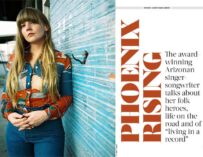
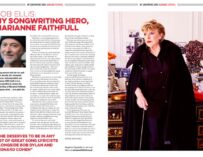
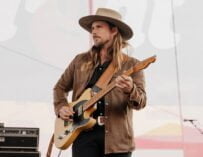

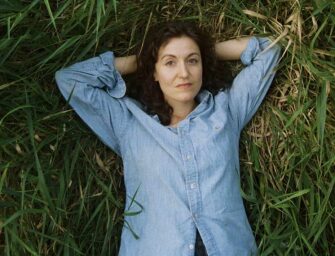



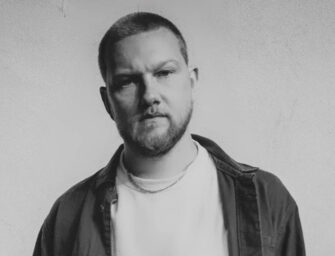























Related Articles